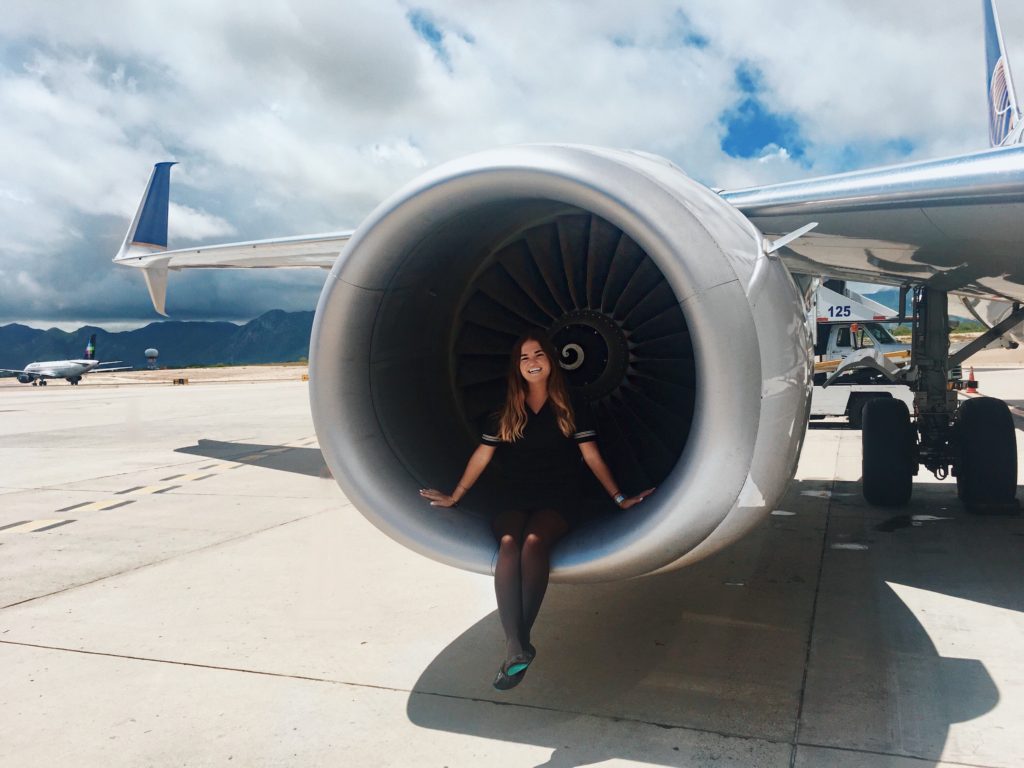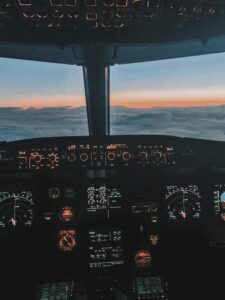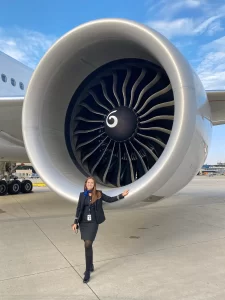Being a flight attendant may seem glamorous – jet-setting around the world, waking up in foreign places, and flying business class for free. The reality of the job, however, is quite different. If you’ve ever considered a job as a flight attendant, ask yourself the following questions before applying to see if the lifestyle would be a good fit.
- Should I be a flight attendant?
- 1. How much do I value stability?
- 2. Do I (really, truly) like people?
- 3. Can I handle potentially taking a large pay cut?
- 4. Do I have responsibilities at home that I can't (or don't want to) leave?
- 5. Am I cool under pressure?
- 6. Am I willing to uproot my current life?
- 7. Can I handle the physical aspects?
- 8. Do I respond gracefully to criticism?
- 9. Am I okay with missing major holidays, birthdays, etc.?
- 10. Can I conform to the company's appearance standards?
Should I be a flight attendant?
1. How much do I value stability?
This one is quite important. Stability, especially as a newly hired flight attendant, is hard to come by. New hires are typically on reserve, meaning on call to work when needed. On reserve, your schedule is at the mercy of crew scheduling. One day you could be waking up at 3 am to make it to the airport by 5; the next week you could be flying all red eyes. Domestic and international, one day turns and four day trips: you’ll be flying it all.
Stability also comes in the form of job security. Most recently, there have been thousands of flight attendant furloughs because of the COVID-19 pandemic. But furloughs aren’t anything new — they happen quite often in the airline industry as demand can change at the drop of a hat. Being open to change (and having a plan B, C, and D) is a necessity.
2. Do I (really, truly) like people?
During the average workday, a flight attendant could directly interact with hundreds of people. In addition to your passengers, you often work with a handful of different crew members. Your crew often changes with every trip, so you have to know how to get along with lots of different personalities and work styles.
When your uniform is on, you are the face of the airline. The company will expect you to be friendly and available to the passengers. If interacting with so many people doesn’t sound like your idea of a good time, being a flight attendant is probably not for you.
3. Can I handle potentially taking a large pay cut?
As a new hire, your pay is not great. Initial training is unpaid and can last between 5-7 weeks. Once on the line, flight attendants are paid by the hour (but only when the aircraft door is closed). This means you could realistically be working a 10 hour day and only getting paid for 6 hours.
If you’re switching to a flight attendant career from a different line of work, you’ll most likely be taking a big pay cut for at least several years. The upside? Pay is quite good at the top of the pay scale, and it’s easy to scale up your income by flying more.
4. Do I have responsibilities at home that I can’t (or don’t want to) leave?
As a flight attendant, you will be away on trips quite often. If you have young children, pets, or aging parents to take care of, this job will take away time you could be spending with them. It’s not so much a question of can you do it — many flight attendants do! — but whether you want to. Think about your priorities and whether the benefits of a flight attendant lifestyle outweigh the negatives.
5. Am I cool under pressure?
Flight attendants have to go through several weeks of training before earning their wings. It may come as a surprise that the vast majority of this training is focused on emergency procedures, first aid, and evacuations.
Is there a fire onboard? Has someone passed out on the galley floor? What about if someone tries to hijack the plane? Flight attendants are first responders in each of these situations. Our main objective is getting all passengers safely from point A to point B — the customer service on the way is just an added bonus.
To be a flight attendant, you have to be willing and able to jump in and help solve any problems that arise.
6. Am I willing to uproot my current life?
“Are you willing to relocate?” is one of the questions they will ask you during your flight attendant interview. As a new hire, you don’t get to choose which base you are assigned to — the company will assign you based on their staffing needs. Transferring bases is also based on staffing needs and most likely won’t be an option for at least several months.
Many flight attendants choose to be based in a city different from where they live, either because they don’t want to move or the company doesn’t offer a base in their home city. To do this, they have to commute in for every trip. Commuting on reserve is possible but not recommended (see question #1 above).
7. Can I handle the physical aspects?
Day to day, a flight attendant job is extremely physical. We carry full trays back and forth, push heavy beverage carts down the aisle, and twist and reach and squeeze in between passengers to close the overhead bins. You’re on your feet for most of the day and often have to power walk through airport terminals in heels. Duty days are long and you’re often working strange hours.
Bouncing from time zone to time zone also takes a toll on your body. Jet lag and insomnia are serious issues that can’t really be avoided. Maintaining a healthy lifestyle is vital, especially if you fly a lot of international flights.
8. Do I respond gracefully to criticism?
Onboard the airplane, flight attendants don’t have any supervisors or managers hovering over them. Typically, the job is very independent. The one place you often get criticism, however, is from unhappy passengers.
There are a lot of things that can upset someone when traveling: delayed or canceled flights, getting heckled by TSA, having to pay $12 for one airport beer. When the passenger boards the airplane, the flight attendant often becomes the sounding board for all of their complaints. You have to be able to take their criticisms gracefully, even when none of it is your fault. Responding to “I’m never flying this airline again” with “I’m sorry sir, could I do anything to change that?” should be second nature.
9. Am I okay with missing major holidays, birthdays, etc.?
As a new hire, you can expect to get assigned to some of the least desirable schedules every month. This often means that you’ll be working on any major holidays and weekends. Sometimes it is possible to move your schedule around to get the day off, but it’s not guaranteed.
Dependability is a big factor in getting hired and in keeping your job. Airlines are looking for someone that will come in when called, regardless of whether or not they had plans for that day. It’s important to know that sometimes, you’ll have to miss out on special events or plans you were really looking forward to.
10. Can I conform to the company’s appearance standards?
This bit is unfortunately pretty important. If you have any visible tattoos, multiple piercings, or wacky dyed hair, most airlines will send you on your way. They’re looking for someone that will adhere to their uniform and appearance standards once hired. Airlines are still quite conservative when it comes to personal appearance and aren’t afraid to disqualify a candidate because of it.

As cheesy as this sounds, being a flight attendant is more of a lifestyle than a job. For at least a few years, it will completely dictate how you live your life. It’s not a job for everyone, and that’s ok. Hopefully, this post helped you think about whether or not this lifestyle is right for you!
If you’d like to see how I ended up being a flight attendant, click here! Stay tuned for some more flight attendant content coming soon.
xoxo Niki
Pin this post to save it for later!


